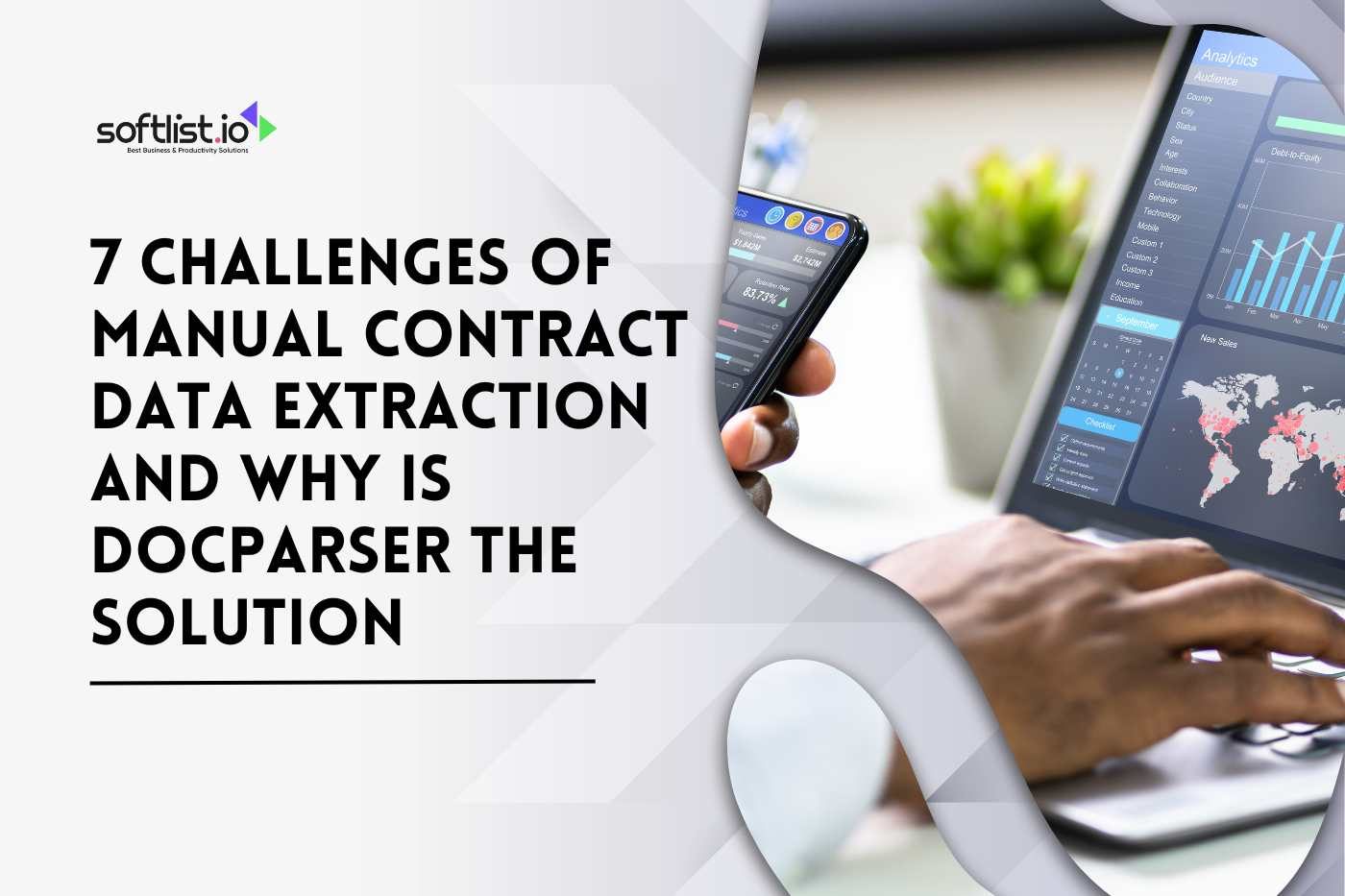You might want to host your WordPress site on a VPS if you’re serious about your business’s online presence. It makes performance and flexibility much better. This blog will show you why VPS hosting is a good idea, how to set up WordPress on a VPS, and how to keep your site running smoothly and optimize it.
There are 17 good reasons to host your WordPress site on VPS. Scroll down to see them. Are you ready to make your site run better? First, let’s talk about the main benefits of hosting WordPress on VPS.
Key Takeaways:
- Enhanced Performance and Reliability: Hosting WordPress on a VPS offers dedicated resources such as CPU, RAM, and storage, ensuring faster load times and better handling of traffic spikes. This setup improves both user experience and SEO rankings, providing a more stable and reliable environment compared to shared hosting.
- Increased Security: VPS hosting allows for customized security settings, including the ability to configure firewalls, install security plugins, and monitor suspicious activities. This higher level of security reduces the risk of vulnerabilities compared to shared hosting.
- Scalability and Flexibility: VPS hosting is highly scalable, allowing businesses to easily upgrade their resources as traffic and data needs grow. The flexibility in software installation and full control over server settings also enable tailored configurations to meet specific web development requirements.
- Cost-Effectiveness: While VPS hosting is more expensive than shared hosting, it is a cost-effective solution that offers many of the benefits of a dedicated server at a lower price. This makes it an ideal choice for small to medium-sized businesses seeking a balance between cost and performance.
- Better Resource Management and Backup Solutions: VPS hosting provides tools for efficient resource management, ensuring that your WordPress site remains responsive even during high traffic. Additionally, improved backup solutions allow for secure and reliable backups, safeguarding your site against data loss.
Why Should You Choose VPS Hosting for Your WordPress Site?

Source: Canva Pro
What are the Advantages of VPS Over Shared Hosting?
When it comes to web hosting, VPS hosting stands out for several reasons. Unlike shared hosting, where multiple websites share the same physical server and resources, a VPS offers dedicated resources to your website. This segregation ensures that your WordPress site is less likely to be affected by the actions of other sites.
Additionally, a VPS provides greater control and customization options over the server environment, allowing you to configure the server software and settings to suit the specific needs of your WordPress site. This enhanced control can significantly improve the performance, security, and scalability of your website.
How Does VPS Improve Your WordPress Site’s Performance?
Performance is a critical factor for the success of any WordPress website. By using a VPS, you can leverage the dedicated resources allocated exclusively for your site, such as CPU, RAM, and storage. This results in faster load times and better handling of traffic spikes.
Furthermore, VPS hosting grants you the ability to optimize server configurations, install performance-enhancing plugins, and even run multiple WordPress sites efficiently. All these factors contribute to a superior user experience, which is crucial for retaining visitors and improving search engine rankings.
What Are the Cost Implications of Using a VPS?
While VPS hosting is generally more expensive than shared hosting, the cost is justified by the benefits it brings. The investment in a VPS hosting plan provides dedicated resources, enhanced security, and better performance, which can lead to higher traffic and potentially more revenue.
It’s important to assess your specific needs and budget to choose the right VPS plan. Many hosting providers offer flexible pricing options, including managed VPS services, which can reduce the complexity of server management while providing robust support.
17 Benefits of Hosting WordPress on VPS for Business Owners

Source: Canva Pro
- Enhanced Performance
If you host WordPress on a VPS instead of a shared server, it will run faster. When you give your WordPress installation dedicated resources like CPU and RAM, it works better and faster.
This setup speeds up page loads, which is important for both user experience and SEO rankings. You won’t have to share the virtual server with anyone else, so even when it’s busy, you’ll always get good performance.
- Increased Security
It is safer to use WordPress on a VPS server than on shared hosting. You can set up security settings that are perfect for your website since you have full control over the virtual machine.
You’ll be better able to set up firewalls, install security plugins, and keep an eye on activities that seem fishy. Regular backups and updates can be set to run automatically, which lowers the risk of security holes.
- Scalability
Hosting WordPress on a VPS makes it easy to add more users. You can quickly change your hosting plan to handle more traffic and data as your business grows. Being able to scale your virtual server makes sure that your site stays responsive and reliable, even if you add new features or make your website bigger.
- Customization and Control
People who use a VPS have full control over the server. This means you can set up and install software that is perfect for web development. A VPS, on the other hand, lets you change everything about your hosting account, from the server settings to the software versions.
- Cost-Effectiveness
Dedicated servers cost more than shared servers but give you more control and better performance. A virtual private server (VPS) is a cheaper way to host WordPress that gives you many of the same benefits as a dedicated server.
It’s a great option for small to medium-sized businesses that want to find a good balance between cost and performance.
- Improved Uptime
Your website or app will be up and running more often with a VPS. Problems with other websites won’t affect yours because your web server resources are separate from them. This level of dependability is important for keeping a professional online image and making sure that customers can always visit your website without any problems.
- Flexibility in Software Installation
When you run WordPress on a virtual private server, you can choose how to install the software. You can install different versions of WordPress by hand, pick the WordPress theme you want to use, and set up your environment to meet your specific web design needs.
This level of adaptability is very important for businesses that have specific web development needs.
- Root Access
You have full control over the server when you host WordPress on a VPS because you have root access. With this access, you can install and set up any software your website needs. This makes server administration tasks easier to handle. Advanced users who want to set up their own servers will benefit the most from having root access.
- Dedicated Resources
When you host your website on a VPS, you get resources like CPU, RAM, and storage that are only for your use. This amount of space makes sure that your WordPress installation always works, no matter what other websites are doing on the server. It’s a safe way to install WordPress in a setting that’s set up to work well.
- Better Resource Management
With VPS hosting, you have the tools you need to make good use of your resources. You can keep an eye on how resources are being used, set limits, and give out more resources when they’re needed.
This control is especially helpful when your site gets a lot of visitors all at once. It makes sure that your hosting service can handle the extra traffic without slowing down.
- Custom Email Accounts
When you set up WordPress on your VPS, you can also link your domain to custom email accounts. This feature can help you keep a professional image and make sure that all of your business communications match the style of your website. Through your hosting control panel, you can set up custom email setups.
- Improved Backup Solutions
When you use VPS hosting, you can back up your WordPress site in a more secure way. You can set up automatic backups that are stored safely and can be quickly restored if you lose data. For business continuity and peace of mind, it’s important to have a backup system that you can count on.
- Isolation from Other Users
When you host WordPress on a VPS, your site will be separate from other users. Your site’s performance won’t be affected by other sites on the same server because of this. It also makes your site safer because security holes in other sites won’t affect it, making attacks less likely.
- Faster Page Loading Times
Using a VPS to host WordPress can make page loading times much faster. Your WordPress installation will load faster if you have resources that are only used for your site and can change the settings on the server to make them work better. When pages load faster, users have better experiences, and it can also help your SEO rankings.
- Ease of Management with Control Panels
A control panel like cPanel or Plesk is often included with a VPS hosting account. This makes it easier to run your website. Setting up a VPS, managing databases, and configuring email accounts are all made easier by these tools. This means that even people who aren’t very good with computers can manage their WordPress site well.
- Staging Environments
You can easily set up staging areas with a VPS to test updates or new features before they go live. This setup is great for web development because it lets you find problems and fix them without affecting the live site. In the staging area, you can install new versions of WordPress or plugins by hand and make sure everything works perfectly.
- Optimized Performance for E-commerce
Hosting WordPress on Hostinger VPS can give your website or app the speed and security it needs to handle transactions smoothly if it has e-commerce features. You can protect customer data, speed up checkout, and install SSL certificates with a VPS.
Hosting WordPress on a VPS is a great option for business owners who want to improve their online presence because of these benefits. A VPS gives you the freedom and speed you need to support your growing business, whether you need to add new features, make your website safer, or make it bigger.
How to Optimize Your WordPress Website on a VPS?

Source: Canva Pro
What Plugins Should You Install to Improve Performance?
To enhance the performance of your WordPress website on a VPS, consider installing plugins designed for optimization. Plugins such as W3 Total Cache or WP Super Cache can significantly reduce load times by caching static files.
Additionally, image optimization plugins like Smush or EWWW Image Optimizer compress images without compromising quality, further speeding up your site. Implementing a Content Delivery Network (CDN) plugin can also help distribute your content globally, reducing latency for international visitors.
How to Configure Your Hosting Control Panel?
Configuring your hosting control panel is essential for efficient server management. Control panels such as cPanel, Plesk, or DirectAdmin offer user-friendly interfaces to manage server settings, databases, email accounts, and more.
Within the control panel, ensure that your server settings are optimized for WordPress by enabling necessary modules and extensions, such as mod_rewrite for Apache or FastCGI for Nginx. Regularly update your control panel software to benefit from performance improvements and security patches.
How to Secure Your WordPress Site on a VPS?
Security is paramount when hosting WordPress on a VPS. Start by keeping your WordPress core, themes, and plugins updated to the latest versions. Use strong passwords and consider implementing two-factor authentication.
Set proper file permissions to prevent unauthorized access. Install security plugins like Wordfence or Sucuri for additional protection. Regularly back up your site and ensure that your server’s firewall and anti-malware software are configured correctly to defend against potential threats.
What Are Common Issues When Hosting WordPress on a VPS and How to Fix Them?

Source: Canva Pro
How to Troubleshoot Common Server Errors?
Common server errors, such as 500 Internal Server Error or 404 Not Found, can be frustrating but are often fixable. Check your server logs to identify the source of the issue. Ensure that your .htaccess file is correctly configured and that file permissions are set appropriately.
Sometimes, increasing the PHP memory limit or adjusting the timeout settings in your server configuration can resolve these errors. For more complex issues, consult your hosting provider’s support team for assistance.
How to Handle Plugin Conflicts on Your VPS?
Plugin conflicts can arise when multiple plugins attempt to perform similar functions or when an update introduces compatibility issues. To troubleshoot, deactivate all plugins and reactivate them one by one to identify the conflicting plugins.
Check for updates or alternatives to the problematic plugin. Maintaining a lean plugin ecosystem by only using essential plugins can minimize the likelihood of conflicts and improve overall site performance.
What Steps Should You Take If Your VPS Server Crashes?
A VPS server crash can cause significant downtime for your WordPress site. In such cases, restarting the server can sometimes resolve the issue. Check for any recent changes or updates that might have caused the crash.
Review server logs for clues and ensure that your server resources are not being exhausted. If the problem persists, contact your hosting provider for support. Regular backups are crucial in these situations, allowing you to restore your site quickly and minimize data loss.
How to Manage and Maintain Your WordPress VPS Hosting?

Source: Canva Pro
How to Monitor Server Resources for Your WordPress Site?
Monitoring server resources is critical in ensuring your WordPress site operates efficiently, especially when using a WordPress VPS hosting environment. Utilize monitoring tools such as New Relic, Nagios, or built-in control panel features to track essential metrics like CPU usage, memory consumption, and disk space.
It’s vital to set up alerts to notify you of any unusual activity or resource overuse. Regularly review these metrics to identify potential issues before they affect your site’s performance. If you notice increasing resource demands, adjust your server configurations, or consider upgrading your VPS plan.
This is particularly important if your site traffic grows or you want to host a new WordPress website on the same server.
What Are the Best Practices for Regular Backups?
Regular backups are crucial for protecting your WordPress site against data loss, especially on a WordPress VPS. Schedule automated backups through your hosting control panel or use plugins like UpdraftPlus or VaultPress. Ensure that backups include both your WordPress files and database.
Store these backups in multiple locations, such as on your VPS, a remote server, or cloud storage services. It’s also advisable to keep a backup connected to your VPS manually to facilitate quick recovery.
Regularly test the backup restoration process to confirm you can recover your site swiftly in case of emergencies. Whether you’re using managed WordPress hosting or a self-managed VPS, having a solid backup strategy is essential.
How to Update WordPress and Its Components Safely?
Keeping WordPress and its components updated is critical for maintaining security and functionality, especially on WordPress VPS servers before performing any updates, back up your site to prevent data loss. You can update the WordPress core, themes, and plugins through the WordPress dashboard or control panel.
Always review the changelogs and compatibility notes for each update to anticipate potential issues. After updating, thoroughly test your site to ensure everything works as expected. It’s a good practice to use a staging environment to test updates before deploying them to your live site.
Whether you’re updating a new WordPress website or an existing one, following these steps ensures that your site remains secure and functional. If you are using a self-managed VPS, remember to manage your VPS IP address and configure the server settings accordingly.
Additionally, securing your site with salt keys from the WordPress API is crucial. These keys are stored in the WordPress folder and selected during the installation process. Ensure you use strong, unique keys from the WordPress API for enhanced security.
When you want to install WordPress, use a secure connection, and remember to set a strong username and password for accessing the WordPress dashboard. Whether you’re setting up a website or application, these practices are vital to maintaining a secure and efficient WordPress environment.
Final Thoughts
Hosting your WordPress site on a VPS is a smart choice for any business owner who wants to make their site faster, safer, and more flexible. Your site will load faster, handle more traffic, and give users a better experience if you give it dedicated resources. You also get more control over your server environment, which lets you make changes that fit your needs and make security better.
Plus, if your business grows, you can make changes to your website to keep it reliable and responsive. VPS hosting might cost more than shared hosting, but the benefits clearly make up for the extra money.
So, if you really want to take your online presence seriously, you might want to switch to VPS hosting. Are you ready to make your site better? Check out our articles on ‘How to Manage WordPress Hostings’ site runs faster and safer right now.
Visit Softlist today for special ‘Deals’ and explore our ‘Top Reviews’ to discover the best product for you!
FAQs: Host WordPress on VPS
Is VPS Better than Web Hosting?
VPS is generally a better hosting solution than traditional web hosting if you need more control and resources for your website. Choosing a virtual private server (VPS) gives you dedicated resources like CPU and RAM, making it a solid choice for sites that outgrow shared hosting.
For example, installing WordPress on your VPS offers better performance and customization. You’ll be able to install WordPress manually or through a one-click install WordPress option, providing flexibility in how you manage your site.
What is the Minimum VPS for WordPress?
The minimum VPS for WordPress should have at least 1GB of RAM, a dual-core CPU, and sufficient storage to handle your content. This setup ensures that VPS users will be able to install and configure WordPress manually, optimizing resource use for basic to moderate traffic levels. If you’re manually installing WordPress, having the right VPS configuration is crucial.
Is VPS Good for SEO?
Yes, VPS is good for SEO because it can improve your website’s loading speed, which is a ranking factor for search engines. Faster performance, especially for popular WordPress sites, enhances user experience and can positively impact your SEO efforts.
By using VPS, you’ll be able to install and configure your database for your website more efficiently, which is crucial for sites built using WordPress.
Is VPS Hosting Faster?
VPS hosting is faster than shared hosting because you get full control over dedicated resources, reducing the risk of slowdowns. This means tasks like handling web traffic, using a web browser, and managing your custom server are more efficient. For WordPress, for example, VPS using a web hosting control panel makes managing your site much easier.
What Type of Hosting is Best for WordPress?
Managed VPS hosting is often the best hosting solution for WordPress because it combines performance, security, and ease of use. It usually includes features like a one-click install WordPress option and ample storage, making it ideal for those wanting a smooth setup without deep technical knowledge.
You’ll be able to install and configure your custom server environment to suit your specific needs, ensuring optimal performance for sites built using WordPress.





